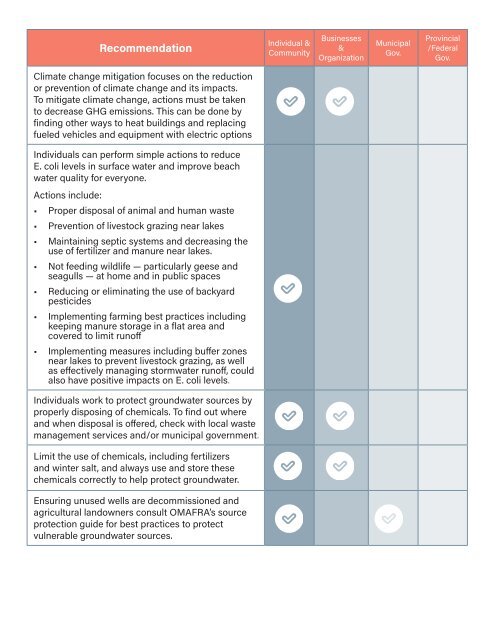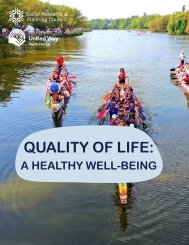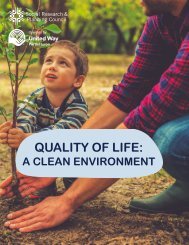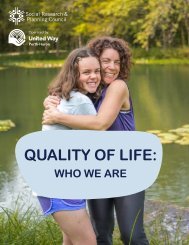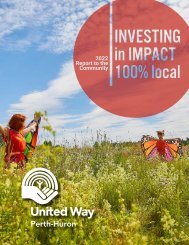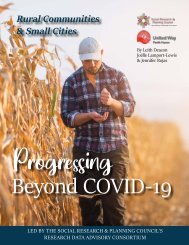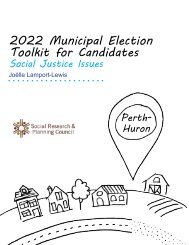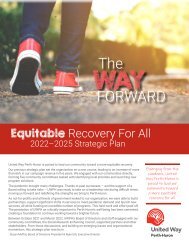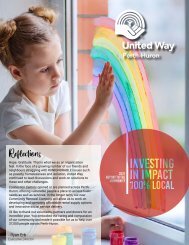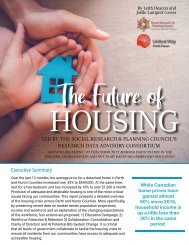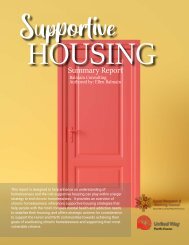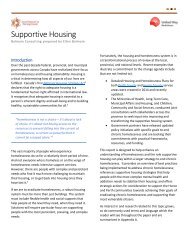Create successful ePaper yourself
Turn your PDF publications into a flip-book with our unique Google optimized e-Paper software.
Recommendation<br />
Individual &<br />
Community<br />
Businesses<br />
&<br />
Organization<br />
Municipal<br />
Gov.<br />
Provincial<br />
/Federal<br />
Gov.<br />
Climate change mitigation focuses on the reduction<br />
or prevention of climate change and its impacts.<br />
To mitigate climate change, actions must be taken<br />
to decrease GHG emissions. This can be done by<br />
finding other ways to heat buildings and replacing<br />
fueled vehicles and equipment with electric options<br />
Individuals can perform simple actions to reduce<br />
E. coli levels in surface water and improve beach<br />
water quality for everyone.<br />
Actions include:<br />
• Proper disposal of animal and human waste<br />
• Prevention of livestock grazing near lakes<br />
• Maintaining septic systems and decreasing the<br />
use of fertilizer and manure near lakes.<br />
• Not feeding wildlife — particularly geese and<br />
seagulls — at home and in public spaces<br />
• Reducing or eliminating the use of backyard<br />
pesticides<br />
• Implementing farming best practices including<br />
keeping manure storage in a flat area and<br />
covered to limit runoff<br />
• Implementing measures including buffer zones<br />
near lakes to prevent livestock grazing, as well<br />
as effectively managing stormwater runoff, could<br />
also have positive impacts on E. coli levels.<br />
Individuals work to protect groundwater sources by<br />
properly disposing of chemicals. To find out where<br />
and when disposal is offered, check with local waste<br />
management services and/or municipal government.<br />
Limit the use of chemicals, including fertilizers<br />
and winter salt, and always use and store these<br />
chemicals correctly to help protect groundwater.<br />
Ensuring unused wells are decommissioned and<br />
agricultural landowners consult OMAFRA’s source<br />
protection guide for best practices to protect<br />
vulnerable groundwater sources.


